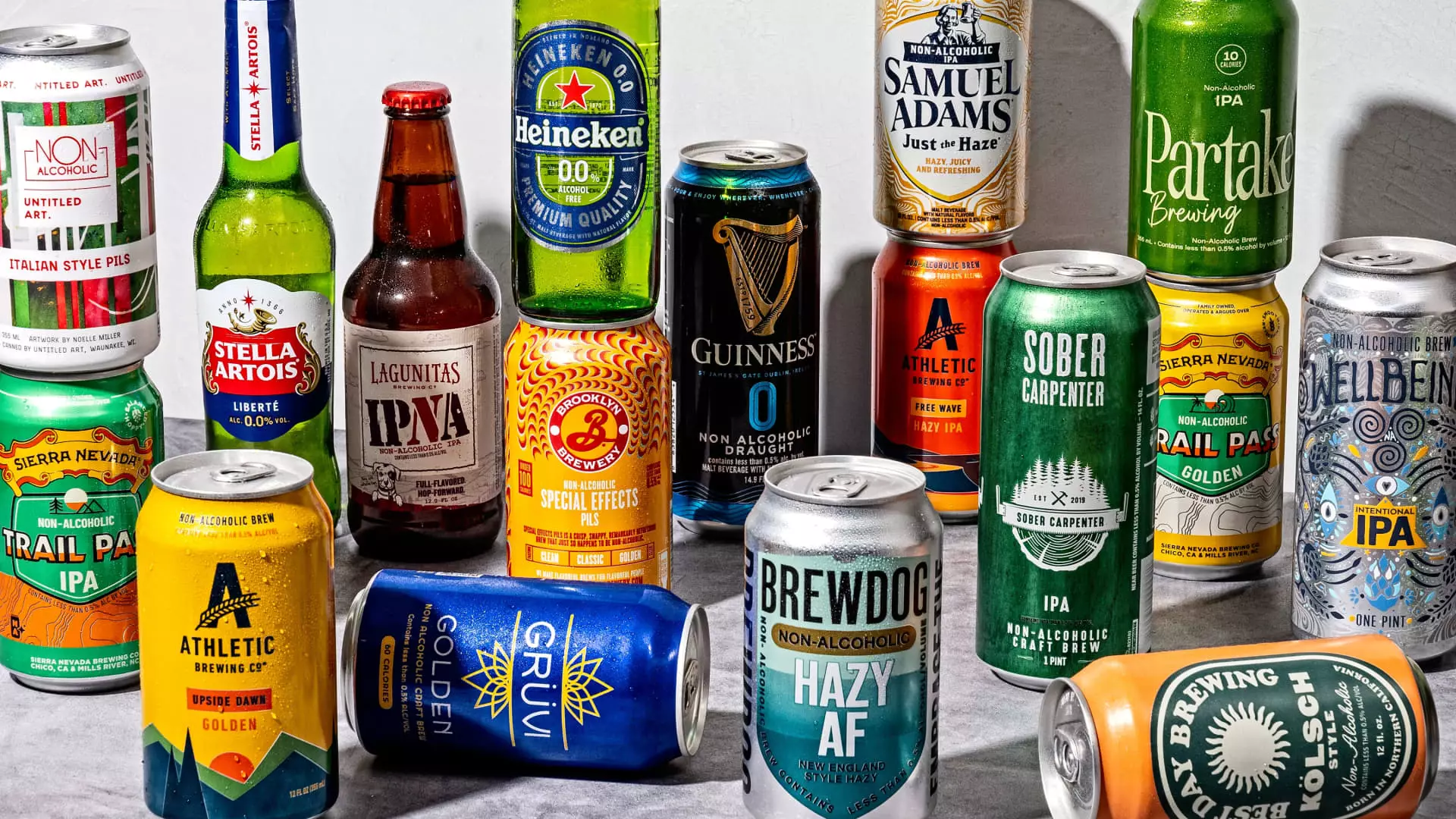In the ever-evolving world of beverages, non-alcoholic beer is carving out a remarkable niche, challenging the very definitions of social drinking. As projected by IWSR, this category is poised to outstrip ale as the second-largest beer segment by volume, fundamentally reshaping the industry dynamics. The fact that, even as the overall beer consumption sees a decline, non-alcoholic beer has been growing at a robust rate of 9% globally should be a wake-up call for an industry that has typically thrived on the intoxicating allure of alcohol. This burgeoning market is distinct from mere trends; it signals a profound cultural shift towards healthier lifestyles, particularly among younger demographics who are redefining their relationship with alcohol.
The Appeal of Moderation
The increasing appeal of non-alcoholic beer can largely be attributed to the changing mindset surrounding alcohol consumption. Terms like “sober curious” and “damp lifestyle” encapsulate modern paradoxes—whereby individuals seek social connection and flavor without the inebriation that traditionally accompanies beer drinking. This evolution reflects a broader societal movement; rather than embracing total abstinence, consumers are opting for moderation and conscious consumption. With millennials and Gen Z leading the charge, this demographic is prioritizing health and wellness over the hedonistic pleasures associated with drinking.
What’s even more compelling is the emotional and communal fabric woven into these choices. Non-alcoholic beer facilitates social interactions sans the fuzziness that often accompanies traditional alcoholic beverages, allowing individuals to engage meaningfully without sacrificing enjoyment. Instead of shying away from social gatherings or resorting to sugary sodas, health-conscious drinkers are opting for sophisticated non-alcoholic options, hence altering the landscape of social drinking altogether.
The Brewers’ Response: Innovations and Investments
It’s worth noting that the brewing industry has responded not merely to market demand, but invigorated by it. Major players, including Diageo and Anheuser-Busch InBev, have heavily invested in creating non-alcoholic versions of their flagship beers, demonstrating their recognition of this monumental shift. The enhancement in flavor profiles is striking; non-alcoholic beers today no longer suffer from the stigma of being bland or unsophisticated. Thanks to innovations in brewing technology, these are produced to closely mimic their alcoholic counterparts, making them appealing to both drinkers and non-drinkers alike. Much like the craft beer movement previously reshaped the beer landscape, non-alcoholic beers stand on the precipice of a similar, if not greater, cultural revolution.
Among the pioneers in this journey is Athletic Brewing, an upstart that has soared from having a mere 4% share of the market to claiming 17% in a few short years, showcasing the appetite for zero-proof alternatives. The company’s success story underscores the enormous potential within this category—even attracting substantial investment that underlines the market’s promise. By reshaping non-alcoholic offerings to appeal to contemporary sensibilities, they are not just riding a trend; they are paving the way for the future of beer consumption.
Global Insights: Regional Trends
Regionally, countries like Germany, Spain, and Japan are witnessing sharper sales figures of non-alcoholic beer, which raises interesting questions regarding local drinking cultures and health norms. However, while the U.S. ranks sixth in sales, its overall market penetration lags, suggesting that there is a significant untapped potential yet to be explored. With the rise of consumer awareness regarding wellness, especially post-pandemic, American brands must innovate to cater to this surging demand. The beer market is no longer merely about getting tipsy; it’s becoming an arena for crafting experiences, moments, and narratives—whether one is consuming alcohol or not.
For better or worse, non-alcoholic beer is also being swept into the whirlwind of celebrity endorsements. The likes of Tom Holland and Dwyane Wade lend an intriguing dimension to this market, signaling that the zero-proof movement is rapidly transitioning from a niche to mainstream. That said, the genuine essence of this cultural movement should not be lost in commodification. As the market grows, it is vital for brands to balance authenticity with appeal, lest they dilute the significant cultural shift happening within the realm of social drinking.
In a landscape that continues to evolve, the rise of non-alcoholic beer challenges preconceived notions about drinking, health, and social engagement. It may not yet be the titan of the beer world, but its ascent is indisputable, transformative, and essential in writing the next chapter of beverage culture.

Leave a Reply